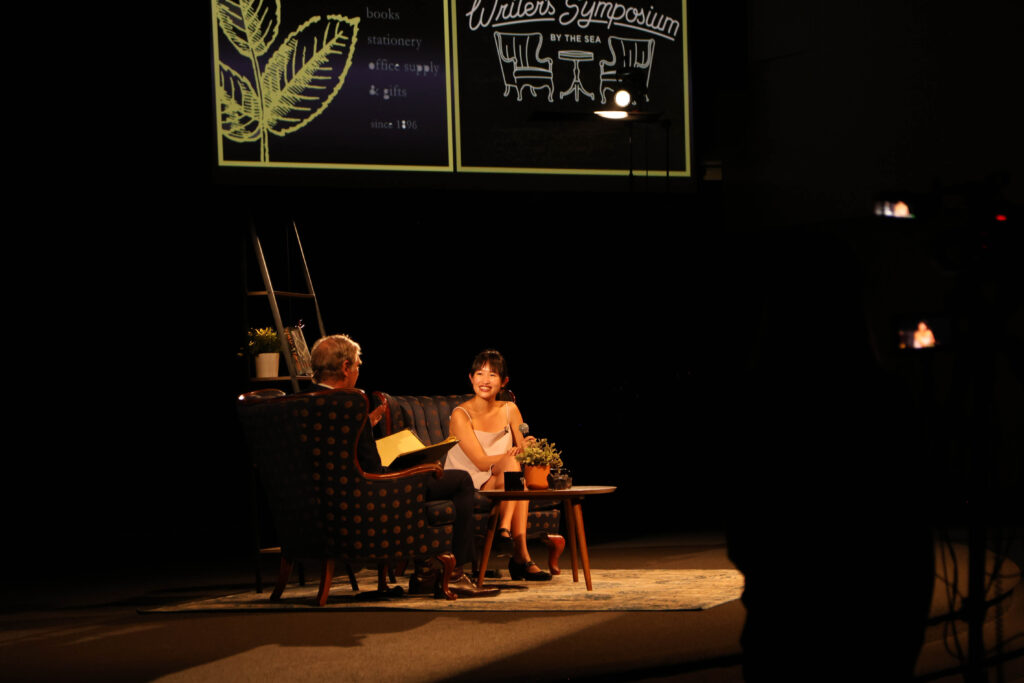Rebecca F. Kuang’s latest novel, “Katabasis,” satirizes the way dark academia novels romanticize academia by portraying Cambridge as a university that treats magic as mundanely as it does calculus.
In the novel, doctoral candidates Alice Law and Peter Murdoch journey to hell to rescue the soul of their professor, who died because of a spell gone wrong, believing they need his letter of recommendation to get academic jobs in their desired fields.
They could easily get less prestigious but wildly better-paying jobs without their professor, Jacob Grimes, but they are steeped in his propaganda that if they can’t get one of those “vanishingly rare” jobs in academia, life will simply lose all meaning and purpose.
So, they use magic to journey into hell — and the toll is half their remaining lifespans.
The hell in “Katabasis” is based on several descriptions from classic literature, which are treated by the story as sojourners’ accounts. Alice and Peter cross-reference authors Dante Alighieri, T.S. Eliot, Lewis Carroll and Greek mythology figure Orpheus as they comb the eight courts of hell for their professor. Despite all the grandiose references and rich source material, the physical landscape of Kuang’s hell didn’t strike me as particularly memorable.
And maybe that’s the point. Maybe hell is supposed to be a vast, gray wasteland compared to the richness of life. But this feels like a missed opportunity in the face of such vibrant sources.

However, the tonal and nominal references to Lewis Carroll’s “Alice in Wonderland” were still fun to read, as they made “Katabasis” feel like a version of the fairytale that has grown up. Alice and Peter encounter people and places that increase in weirdness the deeper they travel, and the Wonderland-esque unpredictability adds to the story’s charm.
In her interview at Point Loma Nazarene University with Dean Nelson, PLNU professor of multimedia journalism, Kuang joked that Alice is a bad feminist.
Alice, who lives in England in the 1980s, finds feminists annoying. She believes that women who feel oppressed purposefully find petty grievances to complain about because they are simply not strong enough to climb the social ladder on their own merit.
Alice believes she has “learned to inhabit the impossible ideal: The girl who [is] eminently f***able but unreachable, and therefore virtuous and perfect.” But a recent event haunts this carefully crafted narrative, creating a paradox in her perception of the world, and the memory grows heavier throughout her journey, pressing on the back of her mind until she cannot ignore it anymore.
I appreciated this exploration of cognitive dissonance, which mirrored the book’s magic system. The magic is based on paradoxes, the rule being that if a magician can convince themselves that a paradox is true, then it becomes so.
Likewise, Alice’s effort to break her paradoxical thinking about her place in the world mirrors her realization that joining the ranks of academia is not worth the unreasonable sacrifices and the abuse it demands her to tolerate.
The coverage of “Katabasis” from the prestige media has been a mixed bag of bitter criticism and resounding praise, with very little in between. In contrast, the independent media consensus seems to be that it is a two-star novel that starts fresh and interesting and devolves into a soggy bibliography. One Reddit post called for Kuang to fire her editor, which I think is harsh (unless she wants to hire me instead).
Many of the issues readers had with it didn’t bother me as much as they did them, but I think that is in part because, as a Kuang fan, I wanted to like it. I do think the plot could have been stronger, but I enjoyed it anyway, because the tone was so much fun and the main character was so delightfully unlikable.
Alice is biting and selfish, witty and brilliant, and often assumes the worst in people she shouldn’t and overlooks the transgressions of those she shouldn’t. These traits are uncommon in female main characters, but Kuang’s novels are littered with women like this, and they are a pleasure to read.
I did find the ending lacking. I liked the way the plot ended, but I wish Kuang had written a few more drafts of the last scenes. They feel a little rushed, like she was more excited about moving on to a shinier project than loving this one until it was ready.
I also wish she had drawn out the ending. Considering how dense with magical worldbuilding and classical references it is for a character-driven story, it ends rather abruptly. Since the book is already a whopping 560 pages, I don’t think an indulgent ending would’ve hurt anybody.
